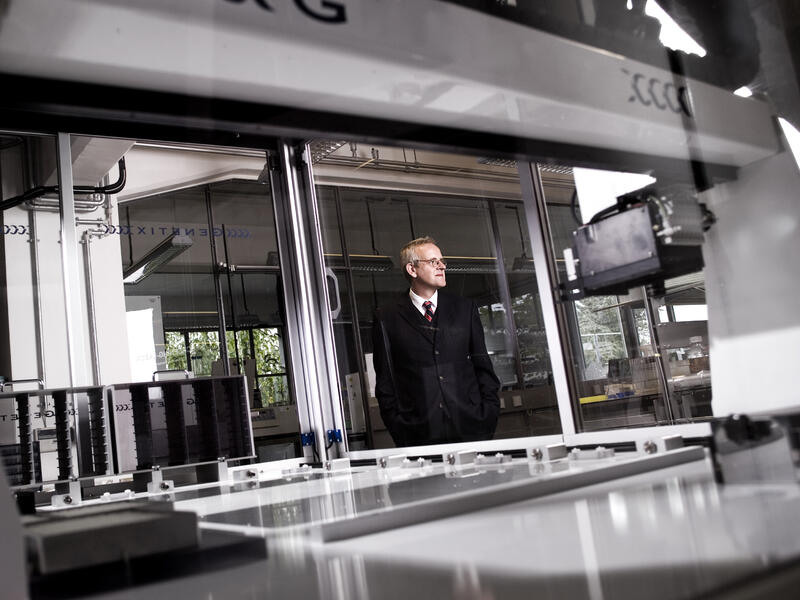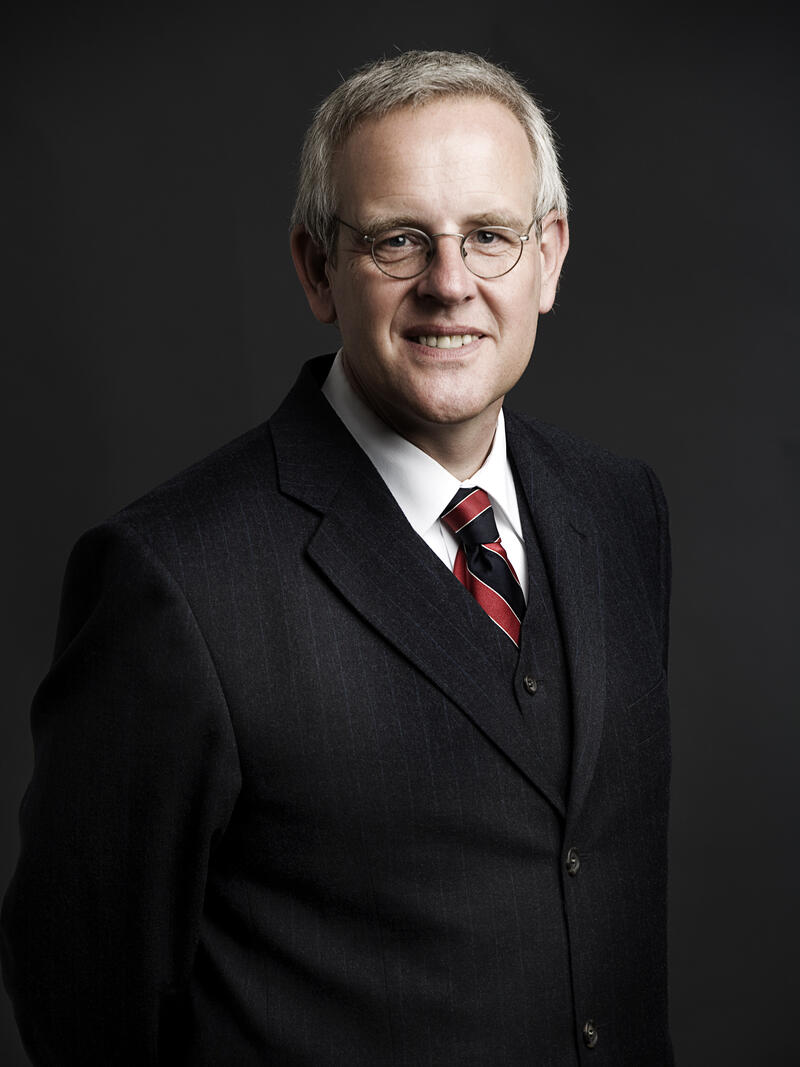“German biotech company is a pacemaker for sustainability”
“Dr Holger Zinke, the founder and CEO of BRAIN AG, is one of the central pioneers in the German biotech industry. He was one of the first people to recognise the increasing importance of utilising the tool kit of nature for industrial purposes. We owe it to Zinke’s commitment that a German company is acting as a pacemaker for the sustainable development of an entire branch of industry.” – These were the words used today by Dr Fritz Brickwedde, secretary general of the Deutsche Bundesstiftung Umwelt (DBU), while announcing the presentation of the DBU’s 2008 German Environmental Award to the 45-year-old Hessian entrepreneur Dr Holger Zinke. On 26 October, he will receive half of the prize money of the 500,000-euro award – the most lucrative in Europe – from the hands of German President Horst Köhler.
Brickwedde: "Zinke played a pioneering role in a field of work with a high social, economic and ecological significance."
The company BRAIN (Biotechnology Research And Information Network) AG, based in Zwingenberg, carries out research on compounds from nature, for example from micro-organisms, which it then employs to replace and improve chemical processes and products using environmentally-friendly methods. “For industrial or ‘white’ biotechnology helps to save energy and materials, reduces the burden on non-renewable resources, protects the environment and improves the economic value added. Dr Zinke has recognised and made use of this potential,” Dr Brickwedde said. He said Dr Zinke played a pioneering role in a field of work with a high social, economic and ecological significance. In so doing, he said, Dr Zinke helped to establish sustainability on a natural and biological basis in industrial production processes and to increase independence from finite fossil resources.

©
"For the first time natures tool kit could be exploited in industrial production"
Dr Brickwedde said that the potential hidden in millions of different species of tiny living organisms had received little notice until only a few years ago, as only one percent of these organisms could be bred in the laboratory and, even today, only around 100 of them can be utilised for industrial production. Since Holger Zinke founded his company in the 90s, he said, a lot has changed: gene technology and a great deal of developmental research have made it possible to “decipher” the genetic information of non-cultivable organisms and thus the blueprint for natural substances. In this way, formerly inaccessible micro-organisms and their synthetic potential could be exploited for the first time in industrial production. “The approach taken by Dr Zinke and his team is innovative, because now, for the first time, the entire toolkit of nature has been made available for industrial purposes,” Dr Brickwedde said.
The biotech company in Zwingenberg develops enzymes used as a key to new products an markets of the futre
He described how the biotech company in Zwingenberg had developed special enzymes that are used as so-called biocatalysts to accelerate biochemical reactions in organisms, and then files patents with the respective industrial partners. Enzymes play a leading role in the metabolism of all living organisms and control the major part of biochemical reactions, from digestion to the copying of genetic information.
Put to practical use, he said, they increased production and reduced the strain on the environment, or were a key to new products and markets of the future.
Revolution in washing powder industry: significant reduction of energy-use and carbon dioxide emission
Dr Brickwedde cited the example of how Zinke and his team, in cooperation with the company Henkel, developed a special enzyme for the washing-powder producing detergent-industry. By using it, laundry could be washed at only 40 degrees instead of at 60 degrees, with the same effectiveness. He said this reduction in energy use would enable 1.3 million metric tons of climate-impacting carbon dioxide to be saved in Germany alone every year, and that the amount of washing powder used for each wash could also be reduced. According to Dr Brickwedde, the savings would amount to 18,000 tonnes per year in Germany alone – and this would not be noticeable just in the pocket of the consumer, but also in a further reduction in carbon dioxide emissions by 54,000 tonnes annually.

©
Important key industries - such as the chemical industry - were now becoming "biologised"
Dr Brickwedde went on to say that Dr Zinke had contributed to the way that important key industries – such as the chemical industry – are now becoming “biologised”. In the textile industry, he said, enzymes were replacing chemicals that were harmful to the environment. In the paper industry, special sorts of paper could be coated in such a way as to allow water-based, more environmentally-friendly, printing. And in the automobile industry, plastics and composite materials could be replaced by new insulating and structural fibrous materials that did not emit any solvents harmful to health and the environment.
"Key cross-industrial technology that helps to achieve sustainable development"
According to Dr Brickwedde, the fact that the biotech industry has been able to emerge from the shadows was largely owing to Dr Zinke and his company. Dr Zinke founded his company in 1993 on the basis of a traditional model for a mid-sized business. At this time, Dr Brickwedde said, industrial biotechnology was still a foreign word in Germany and seed-capital in the millions for biotech start ups were unthinkable. Since then, he said, Dr Zinke had developed the company with sound judgement and launched more than 50 cooperations, some of them international. The cooperation partners include specialist chemical companies such as Evonik-Degussa, BASF, Celanese, Ciba and Clarian, but also consumer-goods companies such as Henkel and Südzucker or the fragrance and aroma manufacturer Symrise or the Enzyme Specialist Genencor Inc.. “The manifold fields of application and the spectrum of methods offered by this technology make it a key cross-industrial technology that helps to achieve sustainable development”, Dr Brickwedde said
"Inventiveness, commitment, creativity and assertiveness in exemplary fashion combined in one person"
He also mentioned Dr Zinke’s committed involvement in founding several biotechnology associations and bodies representing the emerging industry. In 1997, he was the co-founder of the Association of German Biotech Companies. In 2003, he played a major role in the founding BioDeutschland e.V., which represents the interests of German biotechnology companies, and in 2006 was involved in the “Industrieverbund mikrobielle Genomforschung”. In addition, Dr Brickwedde said, Dr Zinke was active in a consulting and advisory role on committees and in programmes connected with industrial or “white” biotechnology. “Dr Zinke represents a type of modern, innovative entrepreneur in a pioneering branch of industry, who combines in his person inventiveness, commitment, creativity and assertiveness in an exemplary fashion”, said Dr Brickwedde.

©